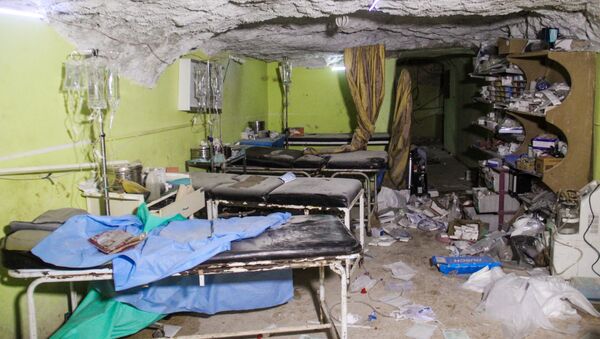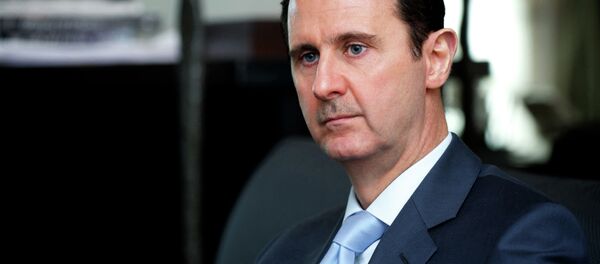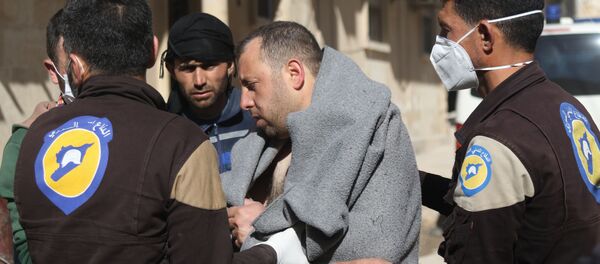Speaking to Sputnik on Thursday Syrian President Bashar al-Assad emphasized that Western countries are deliberately blocking attempts to investigate the Idlib chemical incident.
"We formally sent a letter to the United Nations, we asked them in that letter to send a delegation in order to investigate what happened in Khan Shaykhun," Assad told Sputnik.
"However, until this moment they didn't send any group since the West and the United States blocked any delegation from coming because if they come, they will find out that their narrative about what happened in Khan Shaykhun… was a false flag and a lie," the Syrian president stressed.
Likewise, the United Nations abstained from sending a crew to investigate the chemical attack in Aleppo conducted by Islamists against the Syrian Arab Army a few years ago, he recalled.
"And later many incidents had happened in that way, and they [the UN] didn't send any delegation. It's the same now," Assad said, expressing concerns that new provocations, similar to the one that took place in Khan Shaykhun, cannot be ruled out.
"The UN is a bureaucratic structure," Tarasov told Radio Sputnik, "An appropriate decision should be taken [to launch the process] and everything depends on the decision of the Security Council. [However] the resolutions proposed by Russia do not pass there. The resolutions drafted by the US and its allies — members of the Security Council — are, in their turn, blocked by Russia since they contain serious semantic contradictions."
According to Tarasov, the "hysterical" reaction of the US and its European allies to the Khan Shaykhun incident was hypocritical.
"What is surrounding the alleged chemical attack in Syria and which was cited as a reason for a missile strike by the US, is a 'staged intrigue,'" Tarasov said, "It worked: Turkey withdrew from the alliance with Russia and Iran and supported the Americans. This staged performance has played its role and what is happening now is nothing more than an information confrontation."
On April 4, the National Coalition for Syrian Revolutionary and Opposition Forces accused the Syrian Arab Army of the alleged chemical attack in Khan Shaykhun in the province of Idlib.
Damascus denied any involvement in the Idlib incident, citing the fact that the Syrian government eliminated all its chemical weapons under the auspices of the Organization for the Prohibition of Chemical Weapons (OPCW).
The US and EU rushed to condemn Damascus, although no credible evidence of the Syrian government's involvement in the suspected use of the chemical weapons has yet been presented. For its part, Russia insists on a proper investigation into the incident.
Have you heard the news? Sign up to our Telegram channel and we'll keep you up to speed!



